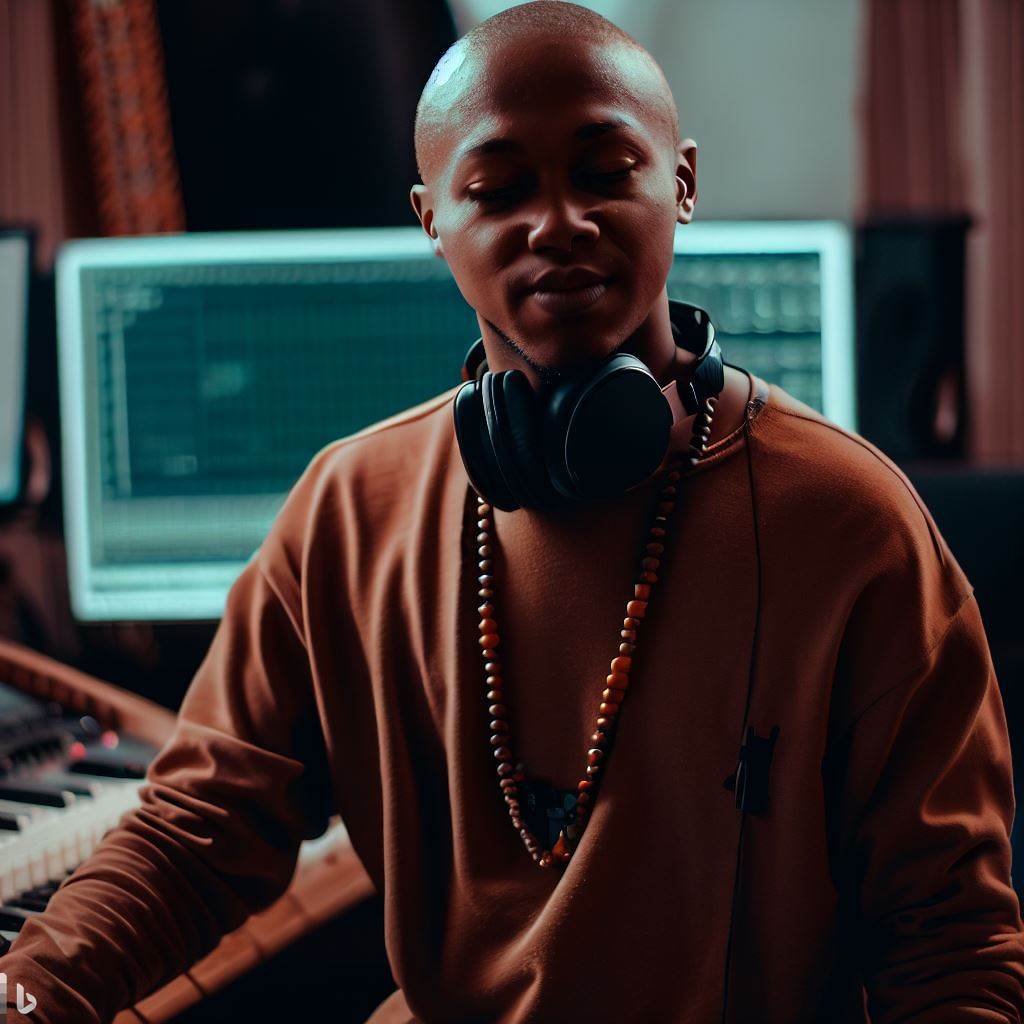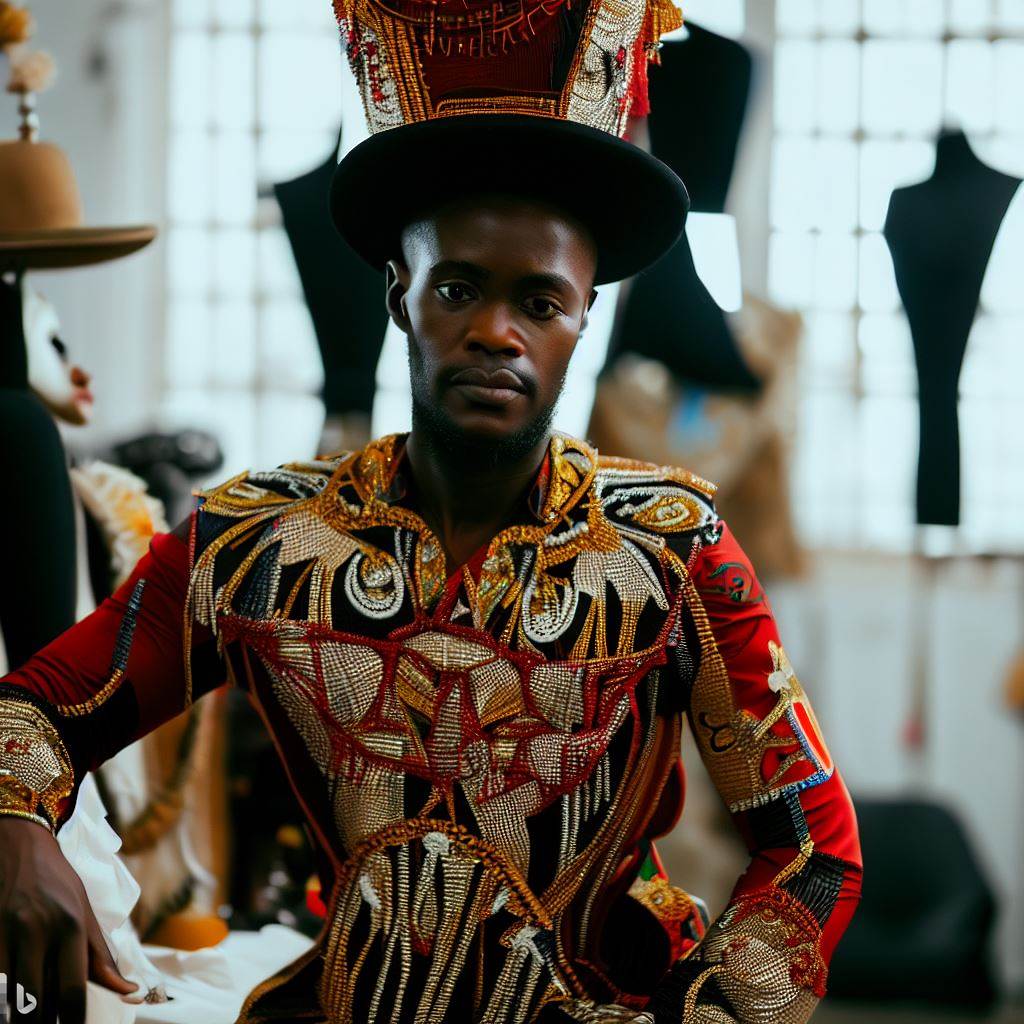Introduction
Briefly introduce the topic of the future of music directing in Nigeria
The future of music directing in Nigeria holds immense potential and exciting opportunities.
As the music industry continues to evolve, the role of music directors becomes increasingly vital in shaping the country’s vibrant musical landscape.
From fostering new talent to guiding creative productions, music directors are crucial catalysts.
Provide a hook to capture the reader’s interest
Imagine a Nigerian music scene teeming with innovation, fusion of genres, and boundless creativity.
Picture a future where music directors are revered as masterminds behind groundbreaking compositions and awe-inspiring performances.
Get ready to dive into this intriguing forecast of Nigeria’s music directing landscape.
In this blog section, we will examine the current state of music directing in Nigeria and explore the emerging trends that are poised to shape its future.
We will delve into the technological advancements, cultural influences, and changing audience preferences that will impact the role of music directors.
The fusion of traditional Nigerian music genres with contemporary global sounds has already gained momentum, showcasing the limitless possibilities within the industry.
With a growing number of talented musicians, the need for skilled music directors to guide these artists towards success becomes paramount.
Moreover, as the digital age revolutionizes the way music is consumed, traditional music directing techniques are undergoing a transformation.
Music directors need to adapt to this digital landscape, using innovative strategies to captivate audiences and stay relevant.
In the coming sections, we will explore how emerging technologies, such as virtual reality and artificial intelligence, are reshaping music directing practices.
We will also discuss the importance of collaboration and mentorship in nurturing talent and increasing the quality of music productions.
Get ready to embark on a captivating journey into the future of music directing in Nigeria, where creativity knows no bounds and innovation reigns supreme.
The possibilities are endless, and the impact music directors can make is immeasurable.
Overview of Music Directing in Nigeria
Music directing in Nigeria has experienced significant growth and development over the years.
This section provides an overview of music directing in Nigeria, discusses the current state of music directing in the country, and highlights the significance and role of music directors in the industry.
Nigeria has a vibrant and diverse music industry, with various genres, styles, and languages. Music directing involves the coordination and supervision of musical performances, both on stage and in the studio.
The role of a music director is to guide musicians, singers, and performers to achieve a cohesive and captivating musical experience.
Music directors work closely with artists, producers, and other industry professionals to bring their creative vision to life.
They are responsible for selecting songs, arranging music, conducting rehearsals, and ensuring synchronized performances.
Current State of Music Directing in Nigeria
The current state of music directing in Nigeria is promising, with an increasing number of professionals embracing this field.
There is a growing demand for skilled music directors who can enhance the quality of musical productions.
Many music directors in Nigeria have gained recognition and international acclaim for their contributions to the industry.
With the advancement of technology, music directors now have access to a wide range of tools and software to enhance their work.
The music industry in Nigeria is evolving rapidly, and music directors play a crucial role in shaping its future.
Significance and Role of Music Directors in the Industry
Music directors are instrumental in creating unique and memorable performances that resonate with audiences.
They contribute to the artistic direction and overall vision of music projects, adding value and creativity to the final product.
Music directors bring their expertise and knowledge of different musical styles and genres, enriching the diversity of Nigerian music.
They collaborate with artists to develop their musical talents, providing guidance and mentorship throughout the creative process.
Music directors also act as mediators between artists and producers, ensuring effective communication and smooth workflow.
Music directing in Nigeria is an essential component of the music industry, contributing to the growth and development of Nigerian music.
The current state of music directing is promising, with professionals making significant contributions to the industry.
Music directors play a crucial role in shaping the future of Nigerian music by creating unique performances, adding value to music projects, and nurturing the talents of artists.
As the industry continues to evolve, music directing will continue to play a vital role in promoting Nigerian music both nationally and internationally.
Read:Nigerian Music Industry: Opportunities & Challenges
Technological Advancements Impacting Music Directing
Technology has completely revolutionized the music directing process, leading to unprecedented advancements in the industry.
From digital music production tools to streaming platforms, every aspect of music directing has been influenced by technological innovations.
How Technology has Revolutionized the Music Directing Process
- The advent of digital audio workstations (DAWs) has streamlined the recording and editing process.
- Artists can now create music in the comfort of their own homes, eliminating the need for expensive recording studios.
- Virtual instruments have opened up a world of possibilities, allowing musicians to experiment with different sounds.
- The rise of social media and online platforms has created new avenues for artists to promote their music.
- Live performances are now complemented by immersive visuals and lighting effects, enhancing the overall experience for audiences.
The Influence of Digital Music Production Tools and Software
- Music production software, such as Ableton Live and Pro Tools, have become essential tools for music directors.
- These programs offer a wide array of features, including advanced audio editing, MIDI sequencing, and virtual instrument integration.
- With the help of digital music production tools, music directors can achieve professional-grade recordings without costly equipment.
- The ability to manipulate and fine-tune every aspect of a track has given music directors unprecedented control over the final product.
- Collaboration has also become easier, as artists can share project files online and work on them simultaneously.
The Impact of Streaming Platforms on Music Directing
- Streaming platforms like Spotify and Apple Music have reshaped the way people consume music.
- Music directors now focus on curating playlists and optimizing their tracks for streaming to reach a larger audience.
- Discoverability has become crucial, as artists must compete to get their music featured on popular playlists.
- Streaming platforms have also democratized the music industry, allowing independent artists to gain recognition without relying on major record labels.
- Music directors now have access to real-time data and analytics, enabling them to make informed decisions about their marketing strategies.
The future of music directing in Nigeria is heavily intertwined with technological advancements.
The influence of digital music production tools, software, and streaming platforms has transformed the way music is created, recorded, and consumed.
As technology continues to evolve, music directors must adapt and embrace these innovations to stay relevant in an ever-changing industry.
Read:Career Spotlight: Film Director in Nigeria’s Nollywood

Changing Trends and Emerging Opportunities
Evolving Preferences and Demands of Nigerian Music Consumers
- Nigerian music consumers are becoming more diverse and demand a wider range of genres.
- The younger generation is embracing international music styles, creating a fusion of Nigerian and global sounds.
- With increased access to the internet and streaming platforms, consumers have a vast selection of music at their fingertips.
- Traditional Nigerian music is still appreciated, but there is a growing preference for modern, urban genres like Afrobeats.
- Consumers now expect music that not only entertains but also tells a story or conveys a powerful message.
Exploring the Rise of Afrobeat and its Impact on Music Directing
- Afrobeat, a genre created by Fela Kuti, has gained immense popularity, not only in Nigeria but worldwide.
- This genre blends traditional Nigerian rhythms with jazz, funk, and highlife, creating a unique and infectious sound.
- The rise of Afrobeat has led to an increased demand for music directors with expertise in this genre.
- Music directors must understand the intricacies of Afrobeat, its instrumentation, and the cultural context behind the music.
- The popularity of Afrobeat has also opened doors for Nigerian music directors to collaborate with international artists.
Emerging Opportunities for Music Directors in Genres like Gospel, Hip-hop, etc.
- The Nigerian gospel music scene has grown exponentially, attracting talented music directors and performers.
- Gospel music directors have the opportunity to create uplifting and inspiring performances that resonate with audiences.
- Hip-hop is another genre on the rise in Nigeria, with artists gaining international recognition.
- Music directors specializing in hip-hop can shape performances that capture the energy and authenticity of the genre.
- Other genres such as R&B, reggae, and dancehall also offer ample opportunities for music directors to showcase their skills.
There are a lot of opportunities out there on cruise ships.
Read: The Growing Demand for Animation Directors in Nigeria
Challenges Facing Music Directors in Nigeria
Music directing in Nigeria is a profession that faces numerous challenges, hindering its growth and development.
These challenges include:
- Piracy: Piracy remains a significant obstacle for music directors in Nigeria.
The widespread illegal duplication and distribution of music materials rob directors and artists of their rightful earnings. - Lack of formal training programs: The absence of structured and comprehensive training programs specifically tailored for music directors limits their professional development and hampers the overall growth of the field.
- Limited recognition: Music directing is often overlooked and undervalued in Nigeria.
The lack of recognition and appreciation for the role and contributions of music directors discourages aspiring professionals from pursuing a career in this field. - Funding constraints: Financial constraints pose a significant challenge to music directors.
Limited funding opportunities make it difficult for directors to invest in quality equipment, studio space, and other resources necessary for their work. - Technological advancements: While technology has opened up new opportunities for music directors, it also presents challenges.
Keeping up with rapidly evolving digital platforms and tools requires continuous learning and adaptation.
Read: Animation Director Salary Guide: Nigeria Edition
Future of Music Directing in Nigeria
Possible future scenarios for music directing in the country:
- Collaboration between music directors and technology companies to create innovative music production tools.
- Increased demand for music directors within the thriving Nollywood industry.
- Integration of virtual reality and augmented reality in live music performances, creating immersive experiences.
- Music directors taking on more diverse roles, including managing artist careers and developing creative marketing strategies.
Potential advancements and opportunities for music directors:
- Access to advanced music production software and equipment, enabling music directors to explore new sounds and styles.
- Increased international collaborations, allowing music directors to work with renowned artists and gain global recognition.
- Expansion of music education programs to train and develop aspiring music directors, nurturing future talent in the industry.
- Utilization of data analytics to understand audience preferences and tailor music directing approaches accordingly.
The importance of adaptability and innovation in the evolving industry
In an ever-changing music landscape, adaptability and innovation are crucial for music directors to thrive.
- Music directors should embrace emerging technologies and techniques to stay relevant and meet audience expectations.
- The ability to adapt to different musical genres and styles is essential in catering to the diverse preferences of Nigerian music listeners.
- Innovation in music directing approaches can open up new avenues for creative expression and audience engagement.
- Music directors must constantly evolve their skills and knowledge, attending workshops and collaborating with other professionals
Conclusion
The future of music directing in Nigeria holds immense potential for growth and creativity.
With advancements in technology, increased opportunities for collaboration, and a focus on adaptability and innovation, music directors can shape the industry and create groundbreaking musical experiences.
Embracing these changes and remaining open to new possibilities will ensure their success and contribute to the flourishing Nigerian music scene.
The future of music directing in Nigeria appears to be bright and promising.
The key points discussed in the blog post include the rise of technology, the growth of the music industry, and the importance of innovation in music directing.
With advancements in technology, music directors in Nigeria have an opportunity to explore new methods of directing and producing music.
This includes using digital software and tools to enhance the creative process and create unique sounds.
Additionally, the growth of the music industry in Nigeria is a positive sign for music directors.
With more artists emerging and a demand for various genres of music, there will be an increased need for talented and skilled music directors to guide and shape the industry.
Lastly, innovation will be vital in shaping the future of music directing in Nigeria.
Music directors need to constantly adapt to new trends and experiment with different styles to stay relevant and meet the changing demands of the audience.
Overall, the future of music directing in Nigeria holds tremendous potential.
As technology continues to evolve and the music industry expands, music directors in Nigeria have an opportunity to make a significant impact and contribute to the growth and development of the Nigerian music scene.




